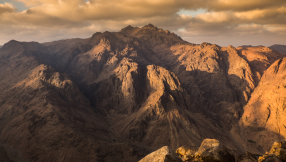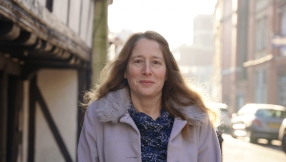This evening marks the beginning of the holy month of Ramadan, the annual time for Muslims around the world to celebrate the first revelation of the Quran to the Prophet Mohammed. The month ends, based on astronomical charts, on the evening of Thursday, June 14.
The timings of Ramadan change every year depending on the sighting of the new moon. The fasting goes on from dawn until sunset. There are a total of around 470 hours of actual fasting (almost 20 full days) in daylight hours during Ramadan 2018.
Ramadan is a time for spiritual reflection, studying the Quran, acts of charity and spending time with loved ones.
Here are six things you should know about it.
1. Ramadan is a fast, from several things. Observant Muslims don't eat or drink in daylight hours during Ramadan. Coffee, tea, or anything containing caffeine is disallowed, as are fizzy drinks, tobacco and sexual intercourse.
2. Fasting is one of the 'Five Pillars' of Islam, the others being the shahadah, the declaration of faith; salat, the five daily prayers; zakat, or almsgiving; and the hajj, the pilgrimage to Mecca.
3. Some are exempt from the fast. This includes most children before they reach puberty, elderly people and the sick, travellers and women who are breastfeeding or menstruating. Those unable to fast are encouraged to instead feed a needy person for every day they are not fasting.
4. It's not just about giving things up. For many it's also a time to recharge spiritually, draw closer to Allah in prayer, read the Quran and practise giving generously to charity. Islamic aid charities will often run appeals at this time of year.
5.The fast breaks at sundown. At sundown every day, known as 'iftar', the fast is broken. Families will share evening prayers before having a meal together. Another meal called the 'suhoor' takes place in the morning just before dawn, and then fasting resumes.
6. As the Islamic months move back through the Western calendar, the holy month is set to begin in April by 2020, in March by 2023 and in February by 2026.
7. The fast ends with the festival of Eid al-Fitr, which is celebrated with gifts to charity and to one another, visits and parties. 'Eid Mubarak' – 'Happy Eid' is a common greeting.













